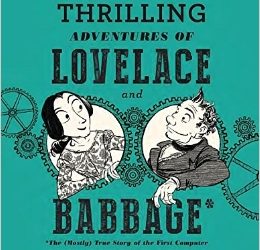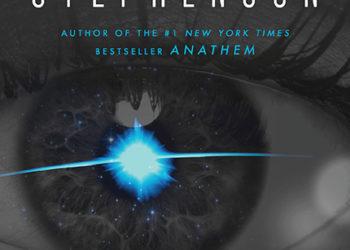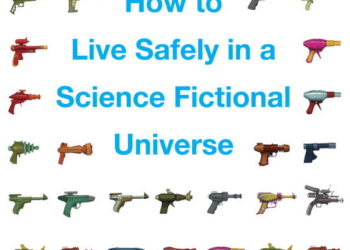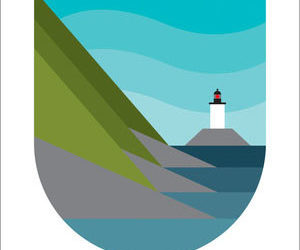Editor’s Note: Continuing an annual tradition, we take a moment to pause at year’s end to look back on the best books we encountered. As always, this is not a “best books of 2017″ list, but a list of the best books the Chefs read during 2017 — the books might be classics, a few years old, or brand new. This is one of the great things about books in all forms — they endure, invite visitation and revisitation, and beckon with ideas. Here’s Part 2 of our list, Part 1 is available here.
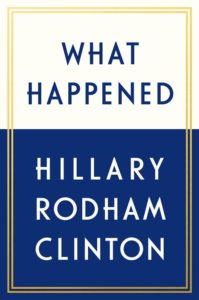 Kent Anderson: The book of 2017 I’ve chosen to highlight is What Happened by Hillary Rodham Clinton. It is a remarkable read, perhaps not only because it’s a book that many hold an opinion about without actually having read it, but, more importantly, because of what it represents and explores. The book essentially explains much of how we got here, delving into and representing topics like sexism and misogyny, hacking and propaganda, and political disruption on a grand scale.
Kent Anderson: The book of 2017 I’ve chosen to highlight is What Happened by Hillary Rodham Clinton. It is a remarkable read, perhaps not only because it’s a book that many hold an opinion about without actually having read it, but, more importantly, because of what it represents and explores. The book essentially explains much of how we got here, delving into and representing topics like sexism and misogyny, hacking and propaganda, and political disruption on a grand scale.
There are many good tales recounted, and, for better and worse, throughout the book, you get Clinton, an experienced, articulate, well-informed, and brilliant woman who for the life of her can’t land a joke. The chapter on Russia captures some of this well, showing how the seeds of Putin’s animosity were sown, how detailed and thorough Clinton’s memory and understanding is, and how unsuccessful her humor and attempts at warmth can be:
George W. Bush famously said that after looking Putin in the eye, he found him “very straightforward and trustworthy,” and was “able to get a sense of his soul.” My somewhat tongue-in-cheek response was: “He was a KGB agent — by definition, he doesn’t have a soul.” I don’t think Vladimir appreciated that one.
This is not to say that Clinton isn’t a good writer. Having read her other books, this is as good as any, and perhaps better because she’s writing with some anger and more abandon. Clinton is an excellent, clear, and interesting writer, and the book is highly readable and consistently interesting (except for some parts where she insists on sharing stories about how people tried to buck her up, perhaps).
As a distillation of major parts of significant events and the major symbolism of 2017, a year that has shown us how far we have yet to go, What Happened is worth reading. It’s not just another political memoir, but a useful lens on the past year or two, and, indeed, what happened.
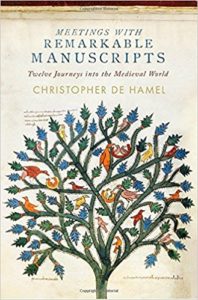 Jill O’Neill: My choice for 2017 is Meetings with Remarkable Manuscripts: Twelve Journeys into the Medieval World by Christopher de Hamel. On some levels, this book centers around scholarly privilege — only an elite set of experts are ever allowed to view the actual manuscripts it discusses. Only a very few prestigious libraries have the resources necessary to preserve such irreplaceable artifacts. Even among scholars of the genre, few may both have the professional networks or financial wherewithal to travel to those archives and to dine on a luncheon of white asparagus and salmon, sipping wine while waiting to meet with a chief curator or director of great national libraries. It’s a very special 1% who enjoy the privilege and prestige of this kind. Envy is a natural (and very human) response to reading that elite’s accounts of travel and study.
Jill O’Neill: My choice for 2017 is Meetings with Remarkable Manuscripts: Twelve Journeys into the Medieval World by Christopher de Hamel. On some levels, this book centers around scholarly privilege — only an elite set of experts are ever allowed to view the actual manuscripts it discusses. Only a very few prestigious libraries have the resources necessary to preserve such irreplaceable artifacts. Even among scholars of the genre, few may both have the professional networks or financial wherewithal to travel to those archives and to dine on a luncheon of white asparagus and salmon, sipping wine while waiting to meet with a chief curator or director of great national libraries. It’s a very special 1% who enjoy the privilege and prestige of this kind. Envy is a natural (and very human) response to reading that elite’s accounts of travel and study.
For myself, however, I can’t begrudge the author of Meetings with Remarkable Manuscripts his global tour of historic libraries and museums. He recognizes his privilege and I am too charmed by the easy erudition with which he shares his experiences. How else might I share the experience of Ph.D. students at the University of Leiden as de Hamel gives an unofficial tutorial about recognizing the authenticity of an exemplar of an ancient Roman manuscript on astronomy (the Leiden Aritea)? Or deepen my understanding of the use of royal Psalters in teaching a young prince his alphabet (the Copenhagen Psalter)? If you’ve heard of it from no other source, it’s an opportunity to learn of the odd (albeit very rich) anthology of medieval song contained in the Carmina Burana. I know very little of medieval times or the manuscripts created in those centuries, but it was easy to absorb much from this particular reading experience.
The production specs of the book are remarkable as well. The pages that de Hamel describes in prose are replicated in color so that the reader can see exactly the vivid carmine and lapis lazuli used in the illuminations. As de Hamel describes illustrations found in the illuminated Spinola Hours held in the Getty, the reader flips the next page and finds a color photograph of the image under discussion. This is extraordinary if only because the artifact itself will only rarely be seen; as with so many of these books, the original is rarely brought out for examination in the interests of preservation.
This is a nerd’s book. There’s a certain depth of detail shared regarding provenance or physical materials used that may strike the casual reader as unnecessary. But for those of us who experience awe in glimpsing (behind closed bookcase doors) the holdings of the Morgan Library or who remember fondly seeing the Bodleian Library on an otherwise forgettable business trip, it’s a fabulous read. If you’re a lover of libraries and archives, I recommend this one.
David Smith:
In an ideal liberal society, radical arguments – even dangerous ones – should be allowed to flourish and compete. The theory, at least the liberal’s hopeful theory, is that the good will outcompete the bad in the marketplace of ideas. With debate and discussion the stronger, more rational arguments always win out.
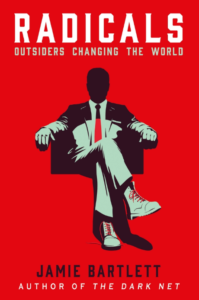 My Book of the Year for 2017 is Radicals by Jamie Bartlett
My Book of the Year for 2017 is Radicals by Jamie Bartlett
Jamie first came to my attention with a two part documentary that aired in the dog days of summer over here in the UK. It was called Secrets of Silicon Valley and of the course of two hours (details here and here, Jamie laid bare what lies at the heart of the information revolution ripping through our culture. I urge you to seek this out. It is superb.
Jamie has written a couple of books, and Radicals is his most recent. I downloaded it for my holiday reading. I have never highlighted so many passages or made so many notes. For example:
The digital prophets assumed that limitless information and total connectivity would make us more informed, less bigoted and kinder citizens. But the internet is an overwhelming smorgasbord of competing facts, claims, blogs, data, masquerading propaganda, misinformation, investigative journalism, charts, different charts, commentary and reportage. All this information is not making us more thoughtful: it’s making us more emotional.
Radicals presents itself in format as ‘Jamie meets a bunch of crazies, and documents his interactions with them’. A sort of Louis Theroux in written form. So we have eight chapters, each an encounter with another type of ‘radical’. We meet the immortality seekers, the far right, the Italian politician Beppe Grillo (and his party), folks trying psychedelics to alleviate mental health issues, the UK Government’s anti-radicalization approach, an alternative community in Portugal, a bunch of eco warriors in Wales, and a woman trying to set up the worlds first functional purely digital nation. Now, you’d be forgiven for thinking that this is a bunch of magazine articles, extended a bit and slung together into book form. (Not that there’s anything wrong with that, if done well.)
It isn’t. Jamie has pulled insight after insight from this disparate collection of free thinkers, radicals, idiots, fantasists, populists and activists. In doing so, he has a lot to say about the state we find ourselves in today. Socially; Culturally; Politically; Technically… His chapter on activism is a tour-de-force. This is writing that gives you a genuine insight into how things work and what is actually going on. This is journalism at its finest. And it’s all immaculately backed up by nearly 80 pages of references and notes.
As 2017 has continued where 2016 left off, this quote stuck with me:
The one constant of history is that everything changes. We should not assume that liberal democracies are the natural order of things. For the last fifty years, they have been the most successful way of securing the maximum peace, prosperity, happiness, opportunity and freedom for the people who live under them. It’s not certain they will remain so.
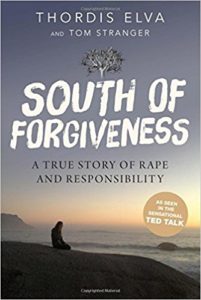 Alice Meadows: Until this weekend, I was all set to review one — or possibly two — books* that I read and enjoyed earlier this year. But as soon as I started reading South of Forgiveness by Thordis Elva and Tom Stranger, this month’s book club pick (for discussion just two days later!), I knew I had to write about it instead.
Alice Meadows: Until this weekend, I was all set to review one — or possibly two — books* that I read and enjoyed earlier this year. But as soon as I started reading South of Forgiveness by Thordis Elva and Tom Stranger, this month’s book club pick (for discussion just two days later!), I knew I had to write about it instead.
It’s a couple of years old so you may already have read it, and/or have watched Elva and Stranger’s amazing TED talk. But, whether you’re already familiar with this “true story of rape and responsibility” or, like me, it’s new to you, it’s a powerful and timely account that I believe bears reading and re-reading.
Powerful because it’s an astonishingly — sometimes agonizingly — honest account of their individual and collective journeys of recovery from Stranger’s rape of Elva when she was just 16 and he was her first love. And because there’s an important lesson for all of us in their, and especially Elva’s, insistence that the person who has been wronged and the wrong-doer must forgive both each other and themselves before any sort of meaningful recovery is possible. Their commitment to this process, over a period of nearly a decade, is extraordinary and inspiring.
Timely because, well, look at the latest batch of stories out about how celebrities, politicians, and others have routinely abused their positions of power; look at the personal stories shared in the Everyday Sexism Project and via the #metoo hashtag. Some of the perpetrators have apologized; many, shamefully, have not. Yet, as shown by Elva and Stranger, a genuine apology and true responsibility for one’s behavior should be non-negotiable (apologies along the lines of “if anything I’ve done may have caused any harm to anyone then I regret it”, of which there are many, don’t count).
The wisdom in South of Forgiveness needs to be shared widely, with abused and abusers alike. It could be our best hope of actually changing this culture, for everyone’s benefit.
(*In case you’re wondering, the two books I originally planned to review were Hillbilly Elegy by JD Vance and The Jane Austen Project by Kathleen A Flynn — believe it or not I had managed to find a common thread!)
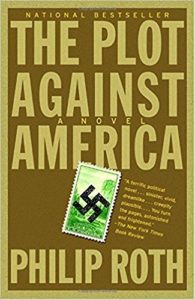 Rick Anderson: Being a sucker for counterfactual historical novels, I’ve been re-reading Philip Roth’s The Plot Against America, which I first read thirteen years ago when it was published. The book’s premise is that instead of being elected to a third term, Franklin D. Roosevelt was beaten by Charles Lindbergh, whose isolationism and crypto-fascism leads the United States into a nonagression treaty with Hitler and to the gradual institutionalization of a policy of anti-Semitism that begins to look more and more terrifyingly like that of Nazi Germany. The book is structured as a childhood memoir, and it gracefully weaves Roth’s recollections of life in 1930s and ‘40s Newark with a child’s gradual realization that everything he had thought he could depend on is slowly falling apart around him. It’s one of the most beautifully written and heartbreaking books I’ve ever read — and it reads very differently in 2017 than it did in 2004.
Rick Anderson: Being a sucker for counterfactual historical novels, I’ve been re-reading Philip Roth’s The Plot Against America, which I first read thirteen years ago when it was published. The book’s premise is that instead of being elected to a third term, Franklin D. Roosevelt was beaten by Charles Lindbergh, whose isolationism and crypto-fascism leads the United States into a nonagression treaty with Hitler and to the gradual institutionalization of a policy of anti-Semitism that begins to look more and more terrifyingly like that of Nazi Germany. The book is structured as a childhood memoir, and it gracefully weaves Roth’s recollections of life in 1930s and ‘40s Newark with a child’s gradual realization that everything he had thought he could depend on is slowly falling apart around him. It’s one of the most beautifully written and heartbreaking books I’ve ever read — and it reads very differently in 2017 than it did in 2004.
Discussion
2 Thoughts on "Chefs’ Selections: The Best Books Read During 2017 Part 2"
I tried to add “Radicals” to my Amazon book list, but found that it has a slightly different title (and cover) in the US. “Radicals Chasing Utopia: Inside the Rogue Movements Trying to Change the World”
Every year I eagerly read these pretending I’m a judge in a competition for the best recommendation, and Jill wins this one hands down. Congrats!
